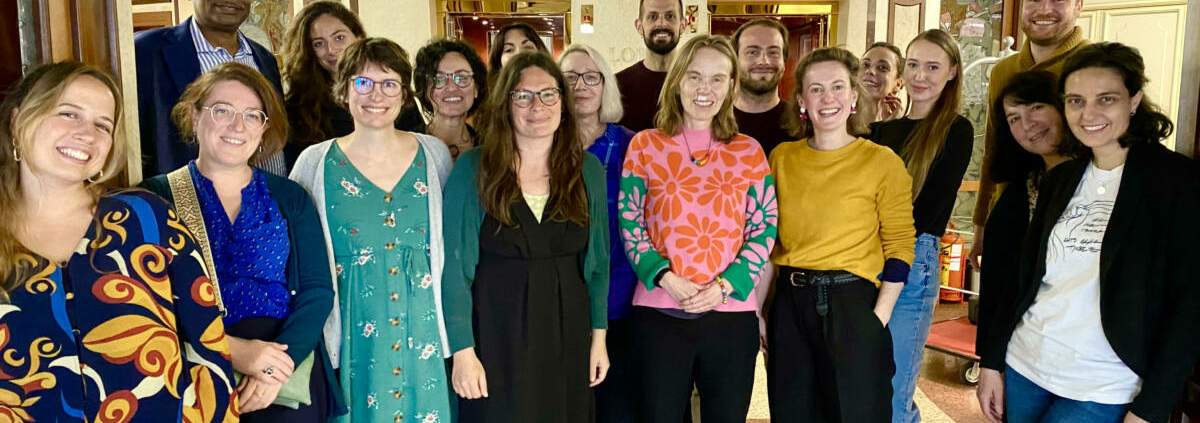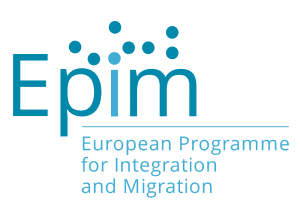Driving change and ensuring sustainable impact: Reflections from the 2023 European Alternatives to Detention Network meeting
Every year, the members of the European Alternatives to Detention Network meet to discuss progress, share learnings, and troubleshoot challenges together. The Network – which was set up in 2017 and has grown to include 11 members in seven European countries – provides a space for members to reflect on their own work in the context of the wider European landscape, reviewing their progress and adapting approaches accordingly.
Last month, Network members met in Sofia, Bulgaria. This year’s meeting focused in particular on leveraging our collective strength to influence policies and effect change, in line with our Theory of Change – our roadmap for achieving meaningful progress on alternatives to detention. It was also an opportunity to discuss our impact to date when it comes to national and regional level advocacy, as well as exploring ways to ensure that our work is sustainable and scalable.
Reviewing our impact
The impact of the Network and of the projects run by its members is a recurrent and crucial theme in our meetings, reflecting the need to evaluate the effectiveness of our collective and individual efforts.
A particular focus of these discussions is the impact that members have when it comes to influencing policy and practice at national and regional levels. This has been a central feature of the Network pilots since 2017; by combining service provision and advocacy, the Network has been able to achieve progress through its focus on providing workable solutions to complex problems.
During this year’s meeting, Network members discussed developments in their national contexts, including the impact of their work on the ground. Several members mentioned agreements that they had secured with government departments and how these had led to positive developments, such as referrals from the authorities and increased awareness of ATD in their countries. In some cases, opportunities for influencing legislative and/or policy changes have also arisen.
Members also discussed the ongoing study being coordinated by the International Detention Coalition (IDC), which seeks to assess the advocacy impact of the Network and identify both challenges and opportunities that lie ahead – the study is due for publication in Autumn 2023.
Members were encouraged to discuss the similarities and differences in their ‘stories of change’, which are individual narratives capturing the changes within each members’ national context as a result of their projects, with the aim of developing a collective story of change. The stories were prepared by IDC in collaboration with members in advance of the meeting. Our hope, through these stories, is to promote collective reflections around how our achievements and challenges can be understood and appreciated.
Members noted that their impact had largely been dependent on the political context and the relationships they had been able to develop with authorities, many of which had been facilitated by members’ ability to frame their work in the context of a wider European movement for change.
We also explored the effective use of evidence for advocacy purposes. Reflecting on data collection and how to measure impact to demonstrate effectiveness, several topics emerged. These included the effectiveness of the pilots when it comes to promoting case resolution and engagement, the very damaging physical and mental health impact of detention, the cost-effectiveness of the pilots, and the number of individuals at risk of detention.
Catalysing change
Catalysing change has been at the centre of the Network’s focus ever since our creation. The very purpose of setting up pilots across a number of European countries was to build evidence on the effectiveness of engagement-based ATD, and to urge governments to adopt and scale up these approaches in order to reduce their use of detention.
It is therefore no surprise that the subject of change was a central part of discussions in Sofia. In particular, we were keen to better understand the forces working with us and those working against us when it comes to achieving our Theory of Change.
All of the Network members are working in challenging contexts, and it often feels like for every step forward we take two back. Despite this, we have seen that through solutions-focused advocacy we have been able to push the dial on the issue of ATD and detention. From informal agreements with some government departments, to more formal commitments to explore ATD, there have been steps forward. Yet we know that progress is not linear and the ongoing developments at national and regional level risk jeopardising this progress.
Members discussed the central role data and evidence has to play in countering disinformation and populist politics, as well as the importance of partnering with a range of actors outside of the migration sector to share learnings, experience, and know-how (this is a key part of the Network’s Scaling Plan, which outlines our strategy for future growth).
Echoing last year’s discussions, we also talked about the importance of grounding all of our advocacy in the expertise of those who have lived experience of detention, ensuring meaningful and responsible involvement of leaders with lived experience in the work of the Network.
Finally, the idea of tactical and strategic relationship building also emerged as key to catalysing change, ensuring that we are engaging governments and policymakers in a dialogue that allows for progress to be made collectively.
Ensuring sustainability
Sustainability of the (pilot) projects is crucial to achieving long-term change, especially when it comes to issues related to migration governance. Shifts in both the political and funding landscapes, however, mean that sustainability is an ongoing challenge.
The Network meeting was an opportunity for members to explore such challenges, for instance by sharing learning and developing organisational capacity for fundraising. We also discussed the disconnect between short-term funding cycles and the longer-term ambitions of the network, as well as how to bridge this gap creatively.
The discussion also touched on the importance of ensuring project sustainability beyond funding through the empowerment of local communities and people with lived experience, joining forces with organisations working on related issues, and continuing to cultivate partnerships and collaborations with governments.
Looking forward to the next five years
As the work of the Network continues to go from strength to strength, we will continue to take every opportunity to collectively learn from each other, celebrate our achievements, and reflect on how we can use our combined strengths to maximise the impact we have for those at risk of or affected by immigration detention.
In the face of hostile political environments across much of Europe, standing together is more important than ever. Our hope as a network is to continue to grow our impact, evidence base, and partnerships in order to show that a different way of governing migration is possible and that this does not include detention. Looking forward to the next five years and beyond, we know this will be an uphill struggle at times, but we are prepared for the climb.
Written by Mario Guido (Europe Programme Officer, IDC) and Hannah Cooper (Europe Regional Manager, IDC).






